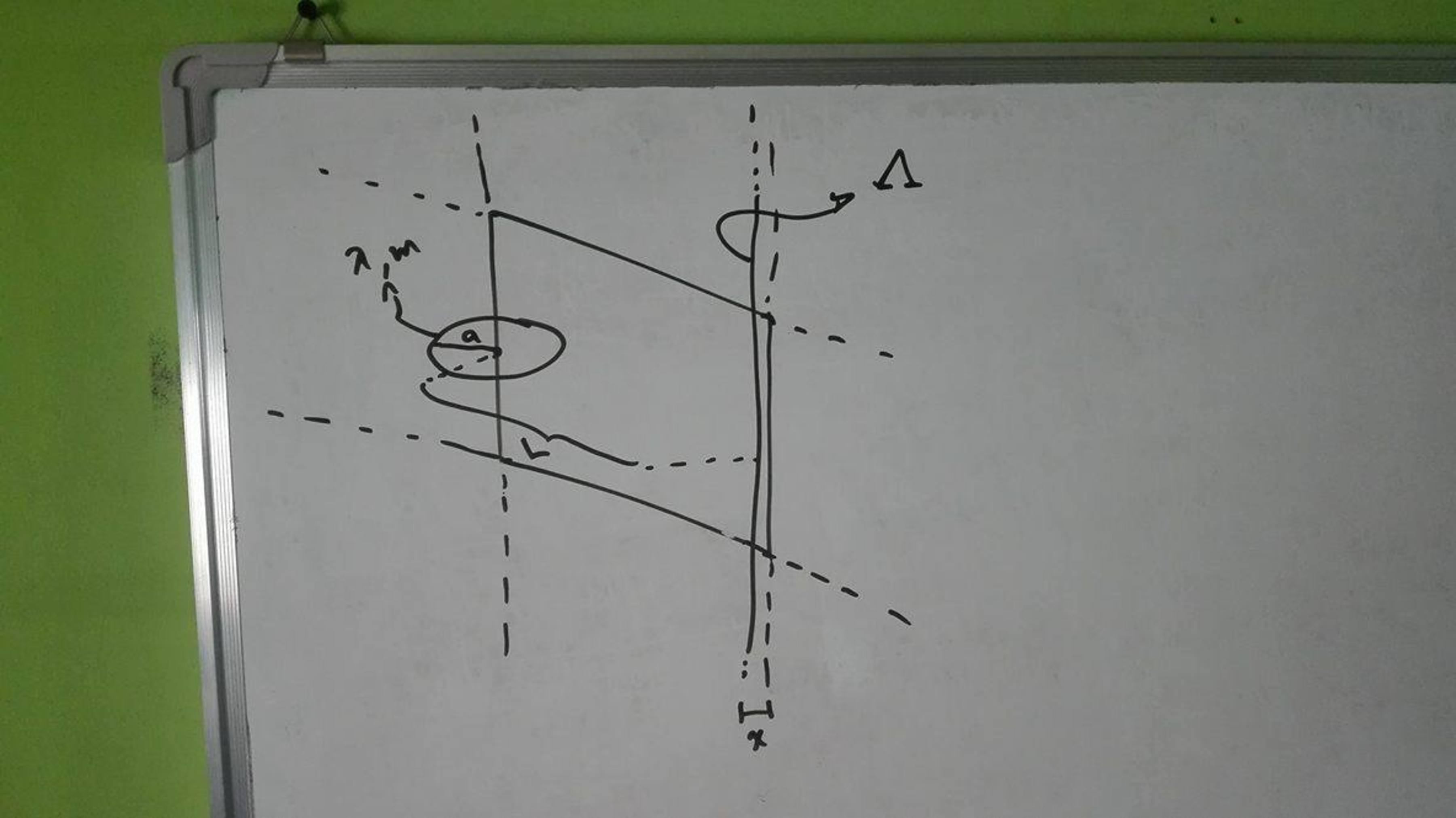Current?
A ring with radius
, linear charge density
and mass
is fixed at its center. An infinite plane passing through the ring, perpendicular to its plane, is a conductor, but it doesn't touch any point of the ring. At a distance
of the ring's axis, such that
, and distance
from the plane, such that
there is a stright line with linear charge density
such that it is parallel to the ring's axis. The value of
such that generates a current
at the ring can be written as:
Where
is the dielectric constant at void and
is time, find the value of
 For more problems, look at my
Own Problems
For more problems, look at my
Own Problems
The answer is 2.
This section requires Javascript.
You are seeing this because something didn't load right. We suggest you, (a) try
refreshing the page, (b) enabling javascript if it is disabled on your browser and,
finally, (c)
loading the
non-javascript version of this page
. We're sorry about the hassle.
As there is a conductor plane, it works as a Faraday Cage . So, only half of the ring is affected by the Electric Field of the line, producing a Torque on the ring and making it rotate. As we know: i = d t d q = d t λ d l = λ a d t d θ = λ a θ ˙ As x < < a we can approach it to be on the plane, but always affecting only half of the ring. As a < < L the electric field made by the line tends to be constant at each point on the ring, so, by Gauss's Law : ∬ S E ⋅ d A = ϵ 0 Q e n c l o s e d ⇒ E = 2 π L ϵ 0 Λ And, by using the equation of torque: I θ ¨ = a ⋅ E ⋅ Q r i n g ⇒ m a 2 θ ¨ = 2 L ϵ 0 a 2 λ Λ ⇒ θ ¨ = 2 m L ϵ 0 λ Λ ⇒ θ ˙ = 2 m L ϵ 0 λ Λ t ⇒ i = 2 m L ϵ 0 λ 2 a Λ t ⇒ Λ = λ 2 a t 2 m L ϵ 0 i